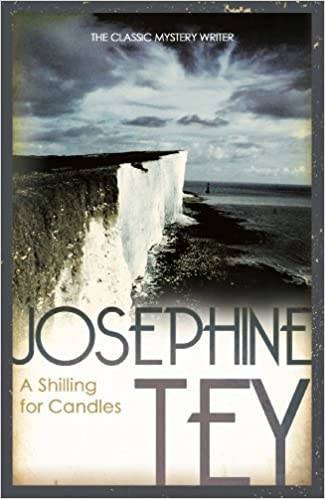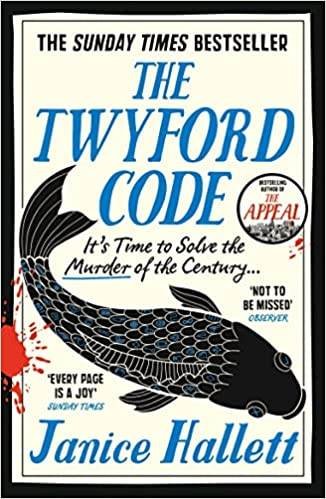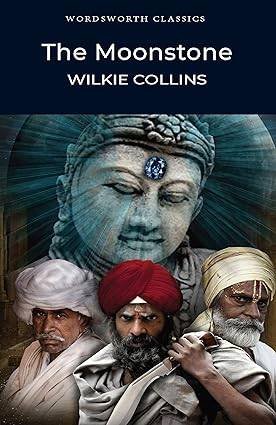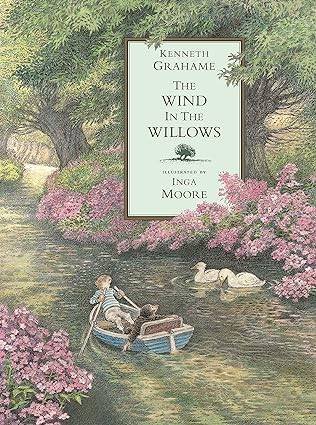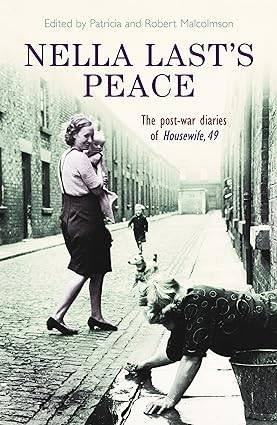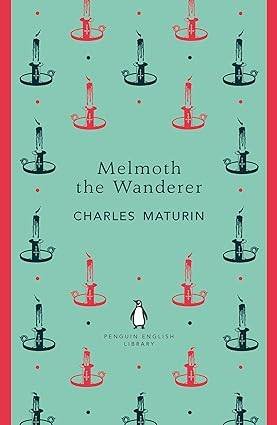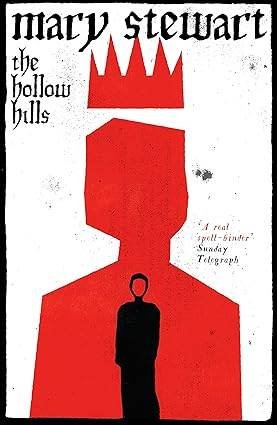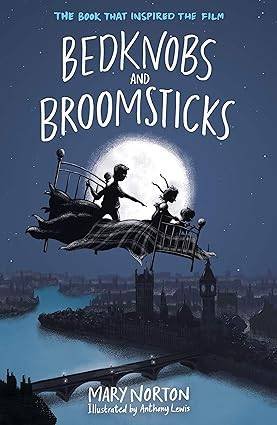Home » Book Reviews » Josephine Tey » Miss Pym Disposes by Josephine Tey
Possible spoilers ahead
Josephine Tey’s books always sound intriguing from the blurb on the back, and a bit different from the regular whodunnit. I am trying to guess from the title just what this book will involve, and wondering what Miss Pym is disposing of…a body perhaps, could she be a killer?!
The story is set in a college and Lucy Pym has visited the college for a few days in order to give a psychology lecture to the students, after writing a book on psychology and with her friend Henrietta being the principal of the college. I am a bit puzzled by this book though as nothing mysterious or sinister seems to be happening, it’s just details of everyday college life and the pupils and teachers busy there, chapter after chapter after chapter, I keep waiting for someone to be hurt or killed (the blurb on the back says there is a ‘nasty accident’ and that there is someone there with ‘a very sick mind’) but there is nothing at all like this yet! I feel I am reading it on high alert, the equivalent of putting my hands over my eyes when I’m watching a thriller on tv, waiting for something to happen and to make me jump, I keep wondering what the disaster is going to be and assessing each situation the characters are in for possible danger, constantly looking for clues and menace everywhere! It’s quite exhausting really. But even though nothing sinister seems to be happening, there is somehow and very cleverly a faint feeling of menace, nothing I can quite put my finger on and I often wonder at times if I’m imagining it because I’m expecting something to happen, but I’m pretty sure the menace is there, and I’m admiring her supremely clever and restrained writing to be able to give very very gentle hints of this menace but without revealing anything major. One example of the possible undercurrent of menace is the seemingly innocent sentence of ‘Shall I warn them both, Miss Hodge?’ and then the word ‘warn?’ is added in brackets in order to signify Lucy Pym’s puzzlement of the word used, so then there’s the very subtle implication that there is something here that Lucy doesn’t fully grasp, some kind of consensus or understanding that she is not part of, a hint of something for her (and me!) to possibly be suspicious of. Another example of the possible undercurrent of menace is the mix of pupils at the college who on the surface all seem to get on but you would expect (and I think Lucy expects) for there to be jealousies and competition and spitefulness between them, so it begins to look a little like a false screen with possible menace just under the surface. And another example of the possible undercurrent of menace is the Principal’s sheer intensity and devotion to the college, it really seems that she would do absolutely anything for the good of the college and that she would stop at nothing to continue its success, which seems just a little threatening in its single-mindedness. Or am I just seeing menace where there really isn’t any?! However, even though nothing much seems to be happening, I am loving learning about life at the college and getting to know and care about the characters, just as Lucy herself is learning about life there, and it’s so well written that I can picture it all very clearly. And I love the tea shop in the nearby village, it sounds like such a heavenly place, I’d love to be there!
Arrrghh, it’s happened! And wow, how it’s happened! The Principal has offered an elite vacancy not to Innes, the highest achieving pupil who everyone presumed would get it, but to Rouse, a slightly inferior pupil who is also suspected of achieving what she has by dishonest methods, and an accident is then engineered by an unknown person which is designed to injure Rouse thereby ensuring she can’t take up the vacancy and that it is offered instead to Innes, but the accident actually kills Rouse! Wow, it all feels so much more powerful because I’ve waited so long for something to happen, Tey has built up the tension and had me on tenterhooks. It takes real skill to be so restrained in your writing, I feel, real skill, to pull the reader in and leave them hanging and hanging, just giving them everyday little scenarios to lull them into thinking everything is normal and ok, and then bam! Phew! And we’re nearly at the end of the book so I feel it must have taken courage for Tey to choose to wait that long before the crime happens, and I can’t help wondering what her publishers thought and if she was pressured into having it happen sooner.
Lucy has evidence that she believes shows that Innes was the one who staged the accident which killed Rouse, and Lucy is desperately trying to decide whether to tell what she knows about the crime and culprit, or not tell. Lucy feels that Innes didn’t mean for Rouse to die in the staged accident and that if she tells what she knows then Innes’ life will be ruined as she’ll be imprisoned, also her parents’ lives will be ruined (although she does wonder if their parenting of Innes and their formation of her character contributed to this course of action, in which case she wonders if they deserve to be punished), and the college’s name and reputation will be ruined, as will the name and reputation of her friend, Henrietta the Principal. And she feels that Innes deserved the elite vacancy in the first place so her actions (though terrible) haven’t given her something she hadn’t earned, so then Lucy considers that if she tells what she knows then the justice of the law would really be taking away the justice of Innes having that elite vacancy, plus Rouse didn’t deserve the elite vacancy so Lucy deliberates whether it is possibly almost ‘right’ and ‘just’ that this happened. Lucy is also swayed by her knowledge of the two characters and that Innes is a nice kind popular person, and Rouse very much wasn’t. Lucy also feels that Innes will now have to live with this on her conscience so will effectively be punished by probably never being happy again or being able to enjoy the elite vacancy, so she wonders if Innes forever punishing herself is actually justice enough and therefore the law needn’t be brought into it. And she also debates within herself if perhaps everything that happened was actually caused by Henrietta for making the poor decision in the first place of choosing Rouse over Innes, which then makes her wonder if it would therefore be wrong for Innes to pay so hugely for someone else’s error as Innes could possibly be said to have just reacted to the error rather than actually causing the error in the first place. However, throughout all this Lucy is also aware that if she conceals the evidence and doesn’t tell what she knows, she herself is then committing a criminal act which she then has to live with on her conscience. Lucy heartily wishes that she didn’t know what she does and that this decision wasn’t on her shoulders. Arrrgh, it’s such an agonising dilemma! And how amazingly clever that Tey can make me agonise along with Lucy, and question myself what is right and wrong, this really is sublime writing! I can completely empathise with Lucy’s dilemma and I honestly don’t know which course she should take, which kind of seems a bit crazy when I step back and consider that Innes has killed someone! But she didn’t mean to kill her. Arrgh, again! How can it be that the simple right course is in reality not always that simple?! And it’s so clever having Lucy be an expert in psychology as you’d have thought she would have all the answers and yet she very much doesn’t, and perhaps her knowledge of psychology makes her question her decisions in more and more depth and to look at the situation and possible consequences from every angle, rather than just going with her gut feeling, ooooh, it was very clever of Tey to make Lucy a psychology student and author! I feel the premise of the book has changed completely now, whereas I would have described it before as a book about college life, now I can see it’s a book all about morality and right and wrong and that this often isn’t as clear as simply right and wrong as there are still far-reaching consequences and innocent people to be hurt even when the seemingly ‘right’ action is followed.
Lucy decides in the end to reveal the truth, but she decides to tell Innes first that she is going to do this. However, Innes causes Lucy to change her mind again by promising that she will atone for what has happened and will sacrifice the enjoyments of her life as a penance for Rouse’s life. Arrrgghh, again, omg, the agonising and tortuous path this book takes your mind on! Would someone’s life devoted to the care of others be more profitable than a life in prison or them being hanged? It’s tempting to think it would be, but that means that Lucy lets Innes get away with the crime. But Innes seems genuine in her promise, and I respected her for only breaking down in tears after Lucy had said she wouldn’t tell anyone what really happened, I like that Innes didn’t cry before in order to try and appeal to Lucy’s good nature or to try and influence her. And at least Lucy’s decision is now finally made, I just need to give it all some thought myself as to if it’s the right decision, but this whole book has made me question what is right and whether wrong is actually right if the consequences for others are lessened!
Omg, omg, omg! And now the huge twist, the enormous twist! I am just reeling and reeling in shock at what has just been revealed! It wasn’t actually Innes who staged the accident, it was Beau (Innes’ best friend)!! Beau did it so that Innes would get the elite vacancy, and all without Innes’ knowledge!!! But Innes had suspected that Beau had done this, so her promise of atonement to Lucy was because Rouse had died for her benefit, not because she had engineered the death herself. Obviously I had to then immediately look back in the book to re-read Innes’ and Lucy’s conversation again, and sure enough Innes indeed doesn’t actually say she committed the crime! I’m not even sure whether Innes realised that Lucy believed she had committed the crime, or if Innes had just presumed that Lucy also knew that it was Beau, as they were clearly speaking at cross-purposes throughout. Re-reading their conversation for a third time (!), I can see that Innes never says the words ‘I did it’ and Lucy never says the words ‘you did it’, so perhaps Innes had no idea that Lucy suspected her. And it’s interesting to consider that Innes was probably busy agonising about justice and whether to tell on Beau or not, just as Lucy was agonising about this regarding Innes. But all Lucy’s (and my) theorising about justice and right and wrong doesn’t apply to Beau as it did to Innes, as Beau clearly wasn’t sorry for what she did and she won’t be punishing herself forever or struggling with her conscience or trying to make atonement in the world, like Innes would have done had she been the guilty one. Wow, I am just stunned with how skillfully Tey had led me to assume Innes’ guilt, what an amazing writer! And after being dealt that huge blow with the accident and then all the agonising about right and wrong, there’s then the huge twist that it wasn’t Innes after all, wow, it’s just so very very clever, I really am blown away with it all and what a wonderful writer she is!
It’s such a subtle tease of a book and I think it would be really difficult to describe to someone really, as nothing much happens in the majority of the book and it seems quite an ordinary and everyday story, until the end…! Tey’s subtlety and restraint and judgement and controlled pace of writing is just sublime, I wonder if any other author could have delicately danced with the reader like that and held back and held back and held back, and then produce that wonderful twist. I know I am gushing and gushing here (!) but I really am awe-struck by what she has created in this book, I think this might be one of the finest and most powerful books I’ve read, and yet its power is concealed within the least amount of action. I need to immediately read it all over again!
The title of the book had also puzzled me, wondering what Miss Pym was to dispose of. I’d originally presumed that she was the killer disposing of the body, then I thought that it was about her disposing of the evidence, but I think now it’s about her disposing of the decision with all her weighty thinking about right and wrong and justice, as she’d wished desperately that the decision (of whether to report Innes’ supposed guilt) hadn’t fallen to her but then wondered if God had deliberately disposed of the decision in this way, ie giving it to her to make because He knew she would give it the deliberation it deserved and try to make the right and fair decision.
Well, as I say, I feel I need to read this book all over again before I can read anything else! But when I do feel ready to put this book down, I will definitely read more of Josephine Tey’s books, I have ear-marked The Singing Sands and The Man in the Queue to read next. And the whole college setting with a dead body reminded me of two of Agatha Christie’s wonderful books so I will re-read those too, Cat Among the Pigeons with Hercule Poirot, and They Do It With Mirrors with Miss Marple (although I think this is more a facility for delinquent boys rather than a school), and another college setting book which I was reminded of and shall fondly re-read (it’s surprising how many murders there are in schools and colleges, tee hee!) is Dorothy L Sayers Gaudy Night. But, as I say, I first have to attempt to recover from the shock and twists of Miss Pym Disposes!

